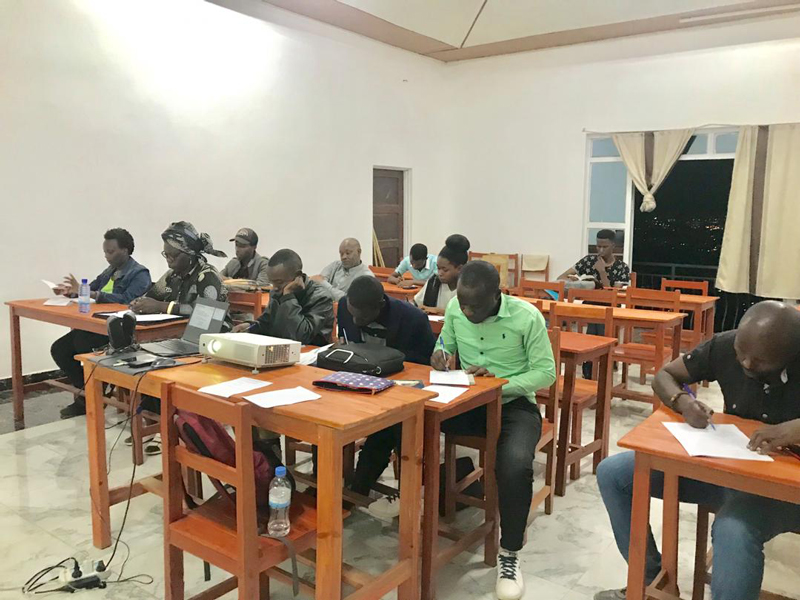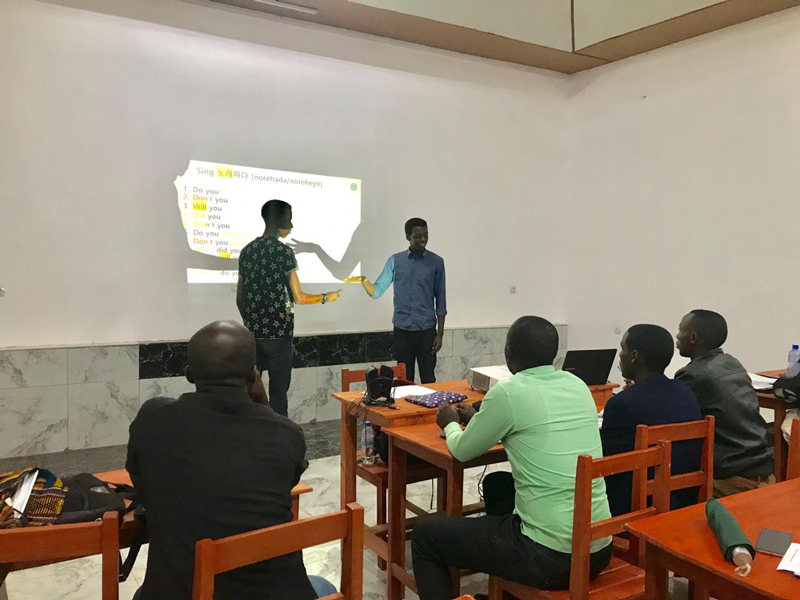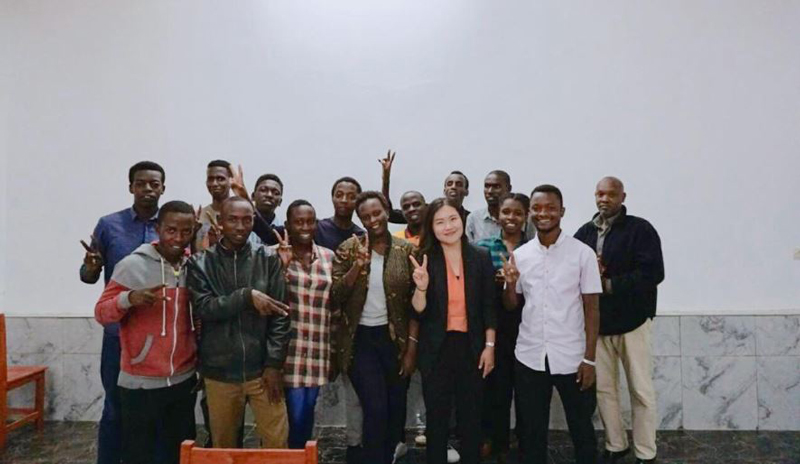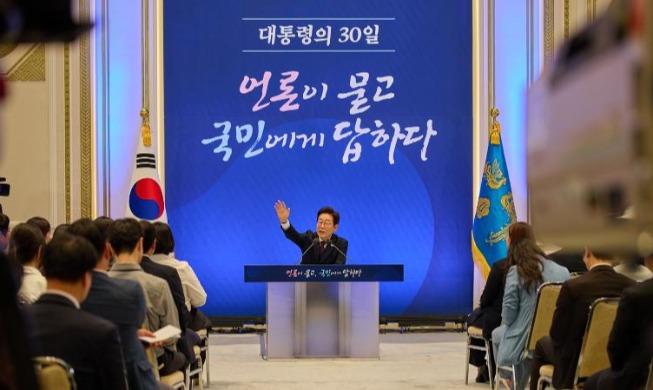- 한국어
- English
- 日本語
- 中文
- العربية
- Español
- Français
- Deutsch
- Pусский
- Tiếng Việt
- Indonesian
By Honorary Reporter Patricia Olsen Karungi from Rwanda
Photos= Patricia Olsen Karungi

Rwanda, the land of a thousand hills and home to 12.4 million people, is famous for mountain gorillas and tea. My country is eight times smaller in area than Korea but its dream is to become the Singapore of Africa. Those from this tiny country striving to learn about Korea feel like everything sounds new from the language and history to the food and social and economic traits.
Being one of the very few in Rwanda to get exposed to Korean culture piqued my interest in the language. I got a lot of mixed feedback when I mentioned taking classes in Korean. Like so many around the world, I got interested in Korea through historical dramas. The expressions in these genres always sound catchy, refined and powerful to my siblings and me. We couldn't resist imitatively addressing each other by royal titles like jeonha (your highness), agassi (miss) and daebimama (mother of the king). One thing led to another, in our case K-dramas led to K-pop, and we felt a thirst for the Korean language and culture.
Learning Korean is a new and popular choice among other foreign languages in Rwanda. An unavoidable comment one gets from someone who learns you're learning Korean is "Isn't it similar to Chinese? Why not learn Chinese?" For the few who decide to learn the Korean language and culture, this comment is one they learn to ignore.

I attended a Korean class last year of three hours per week for almost four months. Of the 20 registered students, only five were female and half of the students were taking Chinese, too. The majority of the students had to take the class for either work or academic purposes, with just a few doing so out of simple passion or a little enlightenment.
People from varying backgrounds and ages all had one common target: master Korean. The class was like a safe haven for most of us in that it was a comfortable place where we met and talked about the mutual interest we shared, Korea. We avoided people's biased or negative comments and reactions. Also, it was free. Unfortunately, it didn't last as long as we hoped since the teachers had to return to Korea. Despite that, we felt that the few months we had were a life-changing and mind-opening experience.
Putting aside the usual grammar, phonetics and calligraphy challenges when learning a new language, I occasionally asked classmates how their friends and families reacted when they mentioned Korean class. I wanted to know if perhaps I was the only one receiving mixed responses.
My close friend said of her friends and family, "They say I have a lot of time to waste and they never understand me. They're always wondering why I love the Korean language." I asked the same question to my other friend who had taken Korean classes before. He just laughed it off and asked me, "Why would I tell them? It's pointless."
Most of us fear being judged by our preferences and choices and being discouraged from holding onto them. We decided to keep it all to ourselves. To top it off, the biggest challenge was that the classes were temporary, and then you start to question if maybe what people said was true. Was it a waste of time? In the end, some will lose interest but others will change language courses, and only a few will keep their spirit.

On the other hand, the perks of being a student of Korean are what motivate most learners to keep going. You experience a culture like no other, totally different and beautiful in its own way. It gives you an automatic invitation and reserved seat at any public event hosted by the Korean Embassy, because everyone who knows you will inform you first. Second, you have a high chance of participating in and winning competitions held at the embassy (whether for speech, singing, writing and photography).
Third, it gives a sense of pride for being one of a few to see and appreciate a beauty others do not. It also introduces people we've been waiting to meet and who've been missing in our social circles. There is also a sense of duty and responsibility to share knowledge about Korea with others. On multiple occasions, my friends and family ask me about Korean songs, artists, politics, places, foods, behavior, devices and restaurants. I'm now called that Rwandan Korean person or friend, and I'd like to think that they imply acceptance of my not-so-strange interest.
So what's it like being a student of Korean in my country? A rollercoaster ride of a struggle for social acceptance and understanding. A battle for self-acceptance, a challenge to keep an open mind, a black hole always yearning for more knowledge, A time to dream and finally your chance to stand out in society.
chaey0726@korea.kr
*This article is written by a Korea.net Honorary Reporter. Our group of Honorary Reporters are from all around the world, and they share with Korea.net their love and passion for all things Korean.
Most popular
- Grammy-winning producer calls Suga of BTS 'amazing artist'
- Animated 'KPop Demon Hunters' tops Netflix charts in 41 markets
- 'Squid Game' events to pump up K-Content Seoul Travel Week
- Reunited BLACKPINK releases video preview of world tour
- 'Universal love, family' themes fuel success of 'King of Kings': director
